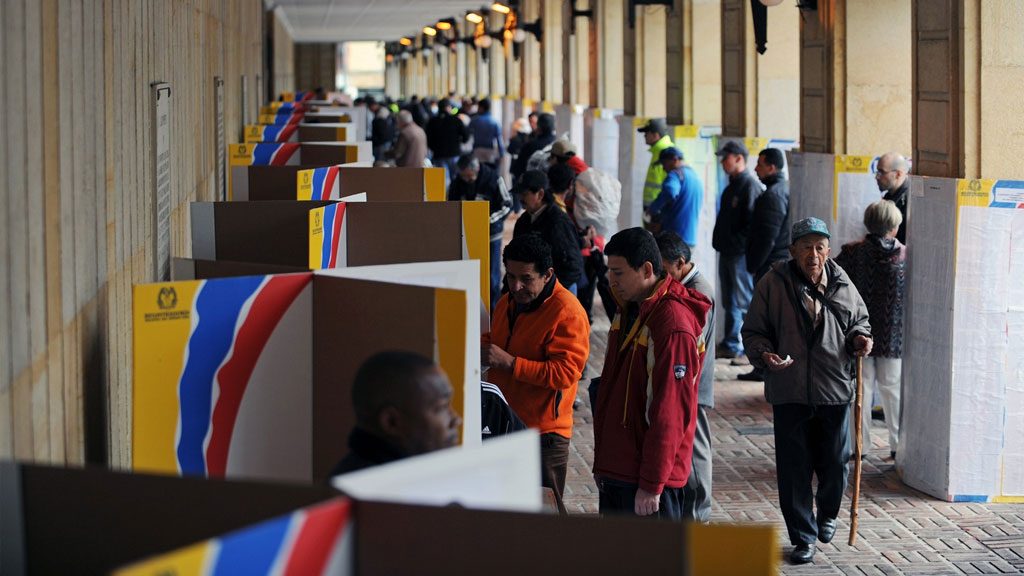At least 20,000 candidates in Colombia’s October 25 local elections have criminal investigations pending against them, according to the Prosecutor General’s Office, reported Caracol Radio Monday.
In 2,000 cases these aspiring public officials are suspected of involvement in drug trafficking. The remaining accusations vary from failing to pay child support to the illegal carrying of firearms, according to the radio station.
In total, the 20,000 politicians reportedly face 103,000 criminal investigations.
Colombia’s authorities — both electoral and judicial — have been making some effort to curb widespread elections considered normal in local elections races in Colombia.
Last week, authorities said that as many of 2 million recently registered voter registrations could be fraudulent. Taking into account that in the last local elections 17 million Colombians turned out to vote, this means that criminal politicians sought to acquire more than 10% of the votes through identity fraud.
Hundreds of thousands of election ballots annulled ahead of Colombia’s local elections
Additionally, electoral observers have been warning about widespread practices of vote-buying.
Criminal interference in Colombia’s local elections became painfully obvious after the assassination of at least four candidates and the intimidation by illegal armed groups of an unknown number of other candidates.
Colombia’s upcoming elections threatened by violence and fraud: Observers
However, the phenomenon is not new. During the 1994 elections, the Cali Cartel was found financing the successful campaign of Liberal Party candidate Ernesto Samper. In 2002, the paramilitary AUC helped finance the successful campaign of former President Alvaro Uribe (Democratic Center).
More than 65 congressmen were arrested convicted after 2006 for using paramilitary death squads to get elected into Congress.
The October 25 elections are particularly important because of ongoing peace talks between the FARC, Colombia’s largest rebel group, and the administration of President Juan Manuel Santos.
If these talks turn out to be successful, the demobilization, disarmament and reintegration of approximately 20,000 FARC fighters and militiamen.
The success of this reintegration in part depends on governors and mayors, particularly in the corruption-ridden rural parts of Colombia.


